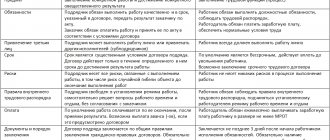Has the inheritance agreement been accepted?
Many people are interested in whether the inheritance agreement has been accepted in Russia or not. The corresponding bill was submitted to parliament by State Duma deputy Pavel Krasheninnikov and adopted in the first reading in the summer of 2021.
From this moment on, it, along with other procedures, is an integral part of inheritance law and allows citizens to choose for themselves how their property will be transferred to third parties in the future.
Since the inheritance agreement appeared in Russia quite recently, few people have had time to appreciate all its advantages. Meanwhile, this type of agreement has many positive aspects, and in certain situations it will be the optimal solution.
What is an inheritance agreement?
This type of paper is the result of combining civil rights and freedoms with inheritance rights.
An inheritance contract is a document under which the acquirer undertakes to carry out a number of instructions from the holder of the property, and after the death of the testator, the executor acquires ownership rights to the possessions specified within the contract.
The general form of the agreement is very similar to a normal testator's last will, executed only in writing and by no one other than the owner of the property.
Such a document is drawn up between several persons for the legal distribution of the testator’s property, and the basis for its acquisition will only be the death of the owner.
In relation to the document, the possessions of the deceased will be accepted by the specified citizens without carrying out the procedure for opening an inheritance.
It is possible to make as many copies of a document as there are parties to the agreement.
All papers must be certified by a notary.
The agreement is drawn up directly for the inheritance, which can be transferred in full or distributed in shares.
The contract may concern any type of property of the deceased: real estate, transport, bank deposit accounts, cash, business enterprise and so on.
The inheritance agreement in Russia was adopted by the state parliament at the first reading in the summer of 2021.
Why is such a procedure needed?
The agreement allows the property owner to outline clear conditions for successors to enter into inheritance rights: to determine what kind of property will be transferred, to whom and under what circumstances.
The right not only to dispose of, but also to have full use of material goods will be transferred to future heirs only after the death of the testator and only if the requirements specified in the document are met.
An inheritance agreement is designed to maximally protect the testator and the property that he intends to transfer to other citizens after his death from the unwanted influence of third parties.
The agreement is a very convenient solution for the heirs themselves, since it involves a significant simplification of the procedure for acquiring rights to bequeathed material goods.
What is an inheritance agreement
No less important is another new form - an inheritance agreement. There are different situations in life. Perhaps there is no person among close people on whom the testator could rely and be sure that his posthumous will will be fulfilled the way he wants.
The case received wide publicity when the son of a famous actor, due to his personality traits, was almost deprived of his apartment in an elite building by unscrupulous “friends”; only public intervention saved the poor fellow from the fate of a homeless person. The father thinks: if I leave, there will be no one to protect his son, and cunning scammers are a dime a dozen...
“A potential testator can enter into an inheritance agreement in advance with any person, regardless of whether he is a relative or not,” explains Pavel Krasheninnikov. — The contract determines the procedure for transferring rights to property subject to any conditions or without them. For example, an heir, accepting an inheritance, undertakes to support one or more family members until the end of their days, not to close and continue to finance a theater or museum, or to pay scholarships to a certain circle of students until they graduate.
Such an inheritance agreement has priority over a will. That is, if the testator has drawn up both, then the inheritance will be distributed according to the inheritance agreement.
The agreement is considered concluded after notarization, but comes into force after the death of the testator. That is, a person does not have to fear that, having signed, he will immediately lose his rights to his property, as happens, say, with a gift agreement.
What is this type of agreement?
This agreement is actually a product of the interaction of inheritance and civil law. In its form it is similar to a classic will. It is always compiled exclusively by the owner of the property and only in writing. Moreover, the number of copies must be equal to the number of parties to the agreement. Requires mandatory certification by a notary office.
The subject of the agreement is the inheritance, which can be transferred by agreement in full or in part.
The heirs will be able to receive both valuables in the form of some things (for example, rare books, antique vases, paintings), and real estate, securities, bank accounts, company assets, or even the entire business.
Parties to an inheritance agreement
The agreement does not place any restrictions on the degree of relationship between the testator and heirs and allows the transfer of material benefits to both individuals and legal entities. True, in the case of the latter, it is important that the terms of the contract do not contradict the main activity of the company.
For example, a citizen has the right to transfer a valuable item to a funeral service, agreeing that after his death the company will organize the burial and care of the grave.
Not only an individual, but also a married couple can draw up a document, thus determining the future fate of the property acquired jointly during marriage.
As in the case of a will, an inheritance contract is subject to the requirement of the testator’s legal capacity. If it is proven in court that at the time of signing the document the owner of the property did not have the opportunity to adequately manage his material assets, then the agreement will be canceled.
Parties to the inheritance agreement
Any individual can act on the side of the testator. It must be fully capable (clause 2 of Article 1118 of the Civil Code of the Russian Federation). The Civil Code of the Russian Federation also allows for the conclusion of ND by spouses. In this sense, an inheritance agreement and a joint will are similar. The testator who concluded the ND is equated under the Civil Code of the Russian Federation to the testator.
On the acquirer’s side there may be citizens and organizations included in the number of persons called for inheritance (Article 1116 of the Civil Code of the Russian Federation). The legislator emphasizes the personal trusting nature of the relationship between the parties to an inheritance agreement. The rights and obligations arising from it are inalienable and non-transferable, that is, they cannot be assigned to anyone or sold (Clause 4 of Article 1140.1 of the Civil Code of the Russian Federation).
In addition to the direct parties to the ND, after the death of the testator, other persons are also involved in the process and are given the right to control the fulfillment of the terms of the ND (Clause 2 of Article 1140.1 of the Civil Code of the Russian Federation). Such persons may be:
- a notary who certified the ND during the period of protection of inherited property and entry into inheritance;
- third parties whose rights and obligations are affected by the ND;
- heirs;
- executor.
Execution of inheritance agreement
The agreement can be executed only after the death of the testator, the fact of which is documented. The law does not provide exceptions to this rule.
The key factor in the issue of execution of the contract is the implementation by the heir of the conditions specified in the document.
If necessary, the owner of the property has the right to appoint a trustee who, after his death, will ensure that the other party fulfills the requirements specified in the agreement. Otherwise, the notary who certified the document will have to take on this task.
Why was the inheritance agreement introduced at all?
The essence of the inheritance agreement is that the testator agrees with the heirs about the future of the inheritance after his death. This agreement may imply the obligation of the heirs to perform certain actions that are important to the testator (for example, to repair an item that will be inherited). That is, the heirs will receive the property of the deceased not just like that, but for certain activity on their part.
The concept of an inheritance contract was introduced in order to minimize disputes arising between heirs after the death of the testator. An agreement between them and the testator will relieve tension and dissatisfaction in the distribution of the inheritance.
Change and termination
The law allows this type of agreement to be terminated or amended by mutual consent of the parties. In this case, judicial intervention is not required. However, all transactions must be recorded by a notary.
In situations where the will is expressed by only one party or an authorized third party, it is possible to terminate the contract through the court.
Termination by court order
A valid reason for the annulment of the agreement in favor of the testator is the fact of complete or partial failure to fulfill contractual obligations by the heir.
The owner of the property can file a lawsuit with a request to terminate the contract if he considers that the potential heir is not properly fulfilling the obligations assigned to him under the contract. For example, he doesn’t take good care of him.
If the agreement stipulated the obligations of the heir, which he must fulfill after the death of the testator, then the person exercising control over the fulfillment of the terms of the agreement can file a similar demand with the court:
- notary,
- relative,
- friend of the deceased.
The heir himself, who wants to renounce his duties due to the impossibility of fulfilling them, has the right to file a statement of claim. For example, due to moving to another country or due to deteriorating health.
The property released as a result of the procedure will be distributed among other heirs according to the law.
Change and termination of inheritance agreement
It is enough to refuse a will, but with a contract everything is somewhat different. It will either have to be changed or terminated. By the way, this can only be done during the lifetime of the parties, of course, by agreement or by court decision, which is unlikely to be obtained unless it is dictated by a significant change in circumstances.
According to
, if an agreement on termination or amendment is not reached, then you will have to go to court, but it will be possible to get a positive decision there only in those cases that are provided for
same article:
- Unforeseen change in circumstances;
- Circumstances have changed due to reasons beyond the control of the interested party;
- Execution of the contract entails damage to the interested party;
- The risk of changes in circumstances is not provided for by the contract for the interested party.
This pragmatic approach also has its advantages, for example, the will can be changed due to the deterioration of the personal relationship of the testator to the heir, and in this case the court is unlikely to count this as a significant change in circumstances.
The testator, of course, can terminate the agreement unilaterally by notifying all parties to the agreement, but in this case he will have to pay all losses incurred by the parties at the time of termination of the agreement, of course, related to the execution of the inheritance agreement.
What are the features
The principle of contractual inheritance was developed as a complement to similar legal procedures already in place. Along with obvious parallels, the agreement also has significant differences that allow us to talk about it as a qualitatively new way of transferring property by inheritance.
Inheritance agreement and will
One of the main differences from a standard will is that after the death of the testator, the estate described in the agreement will automatically pass to the heir under the agreement. That is, you will not have to waste time on entering into inheritance rights or worry about meeting the deadlines for obtaining the right to property, as is required in the case of a will.
The law recognizes the inheritance agreement as paramount. If a will is discovered that contains the same property as in the inheritance agreement, it will be declared void in relation to the inheritance agreement.
In most cases, the ability to inherit the property described in the agreement and according to the law automatically disappears. Otherwise, the document is identical to a will, the nuances of drawing up and implementing which can be read in the material “What is a will”.
In fact, this document opens up completely new opportunities for testators, bringing their expression of will to the fore.
Inheritance agreement and life annuity agreement
Despite the obvious similarity of these two types of agreements, a lifelong maintenance agreement with dependents is significantly inferior to an inheritance agreement in some respects:
- The annuity agreement involves the fulfillment by the other party only of the duties of care and maintenance of the testator during his lifetime. And the inheritance agreement allows you to prescribe both property and non-property obligations that must be fulfilled during the life or after the death of the testator. For example, taking care of his pets.
- The ownership of the testator's property passes under the annuity agreement to the second party immediately after signing the agreement. Under an inheritance agreement, this is possible only after the death of a person and only if the other party fulfills all obligations.
Nuances of execution of an inheritance agreement
Transferees who evade their obligations as a result of an inheritance transaction may be forced to perform. Other heirs, an executor or a notary have the right to demand compliance with the conditions.
The law does not deprive the testator of the right to dispose of property in the usual manner after concluding a contract: a person can donate or mortgage it. Signing an inheritance agreement does not lead to the creation of encumbrances and does not require appropriate registration in the Unified State Register of Real Estate. When concluding other transactions, the testator is not obliged to seek permission from the heirs. As a result, successors will not be able to challenge such actions in court.









